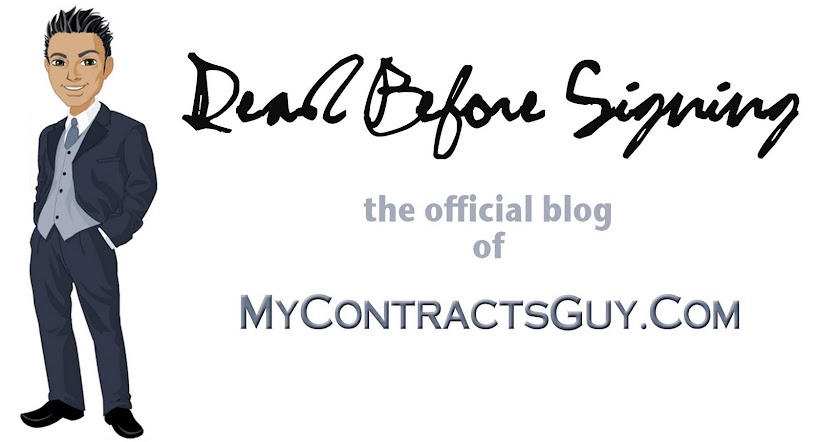 Sometimes the best thing you can do with your lawyer in a negotiation is not to bring him/her along. There’s no doubt that when a planned meeting with a disgruntled partner, business associate or other individual gets a whole lot more adversarial once you let them know you're bringing your attorney. The chances for peaceful reconciliation plummet as the other party has to contemplate getting a lawyer of their own (if they don’t already have one), what sort of lawsuit they might have to defend against (or file) and begin to impute ulterior motives to everything you’ve done in recent memory. In short, it’s no way to resolve anything. In nearly every case I’ve heard of, a great deal more gets accomplished between parties when there aren’t lawyers present than when there are.
Sometimes the best thing you can do with your lawyer in a negotiation is not to bring him/her along. There’s no doubt that when a planned meeting with a disgruntled partner, business associate or other individual gets a whole lot more adversarial once you let them know you're bringing your attorney. The chances for peaceful reconciliation plummet as the other party has to contemplate getting a lawyer of their own (if they don’t already have one), what sort of lawsuit they might have to defend against (or file) and begin to impute ulterior motives to everything you’ve done in recent memory. In short, it’s no way to resolve anything. In nearly every case I’ve heard of, a great deal more gets accomplished between parties when there aren’t lawyers present than when there are.Which isn’t to say that a lawyer still can’t be helpful in a negotiation. We can. There are two things your lawyer can do which will greatly increase your chances for success in a negotiation that don't involve us showing up on your behalf:
- Give you a plan of attack. By talking to an attorney with experience in your type of dispute, you can discover where the equities of your situation actually lie. You may think you have great legal standing where you have none, and vice versa. They will be able to help to craft opening arguments and positions, and counterpoints to common arguments against you. You can get talking points and an overall strategy which you can place in front of you during your meeting - like the good feeling of having your lawyer there with you, without the bad effect it may have your opponent. Winning negotiations demands prior planning. No matter how much the equities cut in your favor, or how charismatic you are - if you don’t prepare (and the other party does), you will come out with less than you could have otherwise.
- Give you a scapegoat. No one likes to be the bad guy in a negotiation. In the end, there is some measure of conflict involved in the process and that’s something that most people don’t enjoy. But having a lawyer means you’ve got someone to blame all the bad news on. Because, in all honesty, lawyers have such a bad reputation that no one’s going to balk at the idea that your attorney is “making” you say all these bad things and gave you no choice in the matter. After all, you’re paying him and he’s supposed to know, right? Besides, what is your opponent really going to say? People may hate lawyers, but they also regard them as authorities - especially when they don’t know otherwise (and sometimes even when they do). Nothing gets you out of the “bad guy” role faster than preceding your point with “My lawyer said...” - and actually having a name a number to hand him if he calls your bluff is a solid idea. The other upside of this is that you don’t get charged by your lawyer to simply use his/her name in the negotiation. Although, I’d steer clear of making things up on the fly and attributing them to counsel - that may earn you the opportunity to find a substitute legal professional.




0 comments:
Post a Comment